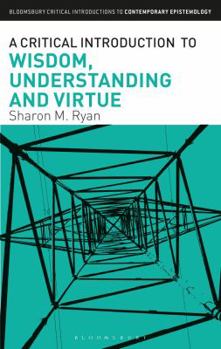A Critical Introduction to Wisdom, Understanding and Virtue
Select Format
Select Condition 
Book Overview
By pulling together an assortment of epistemological problems relating to wisdom, this critical introduction provides a guide to contemporary discussions about wisdom and related controversies in epistemology.
Beginning with its historical roots in both Eastern and Western philosophical thought, it introduces the nature of wisdom as understood by Plato, Aristotle, Aquinas, Descartes as well as Buddhism. Exploring debates about the ethics of belief, it examines the nature of knowledge; intellectual virtue and humility; skepticism; the value of leisure, faith and reason, disagreement and epistemological features of forgiveness. By connecting in exciting new ways to questions about intellectual virtue and epistemic responsibility, it tackles problems such as Can a wise person have faith in God? How would a wise person handle disagreement? Concluding with an original theory of wisdom, A Critical Introduction to Wisdom, Understanding and Virtue makes a significant scholarly contribution to contemporary philosophical debates on the nature of wisdom and the ethics of belief.Format:Paperback
Language:English
ISBN:1350021296
ISBN13:9781350021297
Release Date:July 2027
Publisher:Bloomsbury Academic
Length:256 Pages
Related Subjects
PhilosophyCustomer Reviews
0 rating





